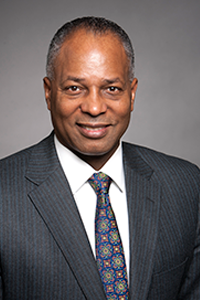Detroit Taxpayers to Have Electronic Filing Option
City income taxes to be e-filed along with state returns.

In January, Detroit taxpayers, for the first time, will be able to electronically file their city income tax returns along with their state income taxes.
Detroit’s Chief Financial Officer John Hill spoke with WDET’s Sandra Svoboda about the new process and what it means for taxpayers and the city. Hill wouldn’t estimate how much increased revenue the process could mean to the city’s budget.
He points out that it’s not a complete fix to the city’s tax collection issues. While employers located within the city withhold city income tax from employees, suburban businesses that employ Detroit residents are not required to do so. The issue has garnered national attention. The Michigan House is considering legislation that would require businesses to withhold for employees who live outside of the municipality where they work.
Detroit is one of 22 cities in Michigan that levy local income taxes.
Here’s a transcript of Hill and Svoboda’s conversation:
Sandra Svoboda: What does this new process mean for taxpayers?
John Hill: They’ll have improved accuracy. It will be easier because it will be the same filing as they have to do with the state tax return, and then the city form is essentially a schedule on the form of the state tax return. Refunds are going to be faster because there will be quicker processing which will offer also a quicker refund on the check and then they’ll be information they can get online concerning the receipt of their return as well as finding out when their refunds have been processed or issued.
SS: How much do you estimate this will mean for the city in increased income?
JH: It’s really hard to say and we don’t actually have an estimate on the increase. But our hope is that it will allow us to better be able to compare the information that we have from our income tax returns with the information that the state gets. We do believe that it’s going to have an improvement but we haven’t really been able to quantify what that improvement will be.
SS: This will apply to both residents of the city who pay 2.4 percent of their income in taxes and for non-residents of the city and work in the city and pay that 1.4 income tax.
JH: That’s right.
SS: The state Treasury will collect the money and then disburse it to the city? What’s that schedule?
JH: The state Treasury will be collecting the money. But actually what happens in most of our income tax, most of our income tax come in as a result of withholding. Employers are actually collecting the taxes and remitting them to the city. For 2015, as you know, those withholdings are already in the process of being collecting through the employers and then remitted to the city directly. Next year would be the first year those amounts would be remitted to the state and we would have visibility into what those amounts are.
SS: Is that just for businesses in the city that are doing that or is it for the so-called reverse commuters, city residents who work in the suburbs but their employers are not withholding now?
JH: Right now it’s just for employers in the city who are required to withhold taxes for residents and also for non-residents. But the issue of income tax at its source and being able to collect income tax from other employers outside of the city is something that we’re working also working on with the mayor and the state.
SS: As the city’s Chief Financial Officer, you testified during the bankruptcy trial a year about what this would mean, of course increase revenue to the city from taxes that re not being collected now.. What took a year to get this in place with the state?
JH: There are a lot of things that have to occur with any tax compliance. In this particular case, we were looking at forms and formats that might not be used just by Detroit but could potentially be used by other jurisdictions around the state. Actually I’m shocked that we were able to do it this quickly because I think in other jurisdictions I think it may have taken a lot longer to do this.
